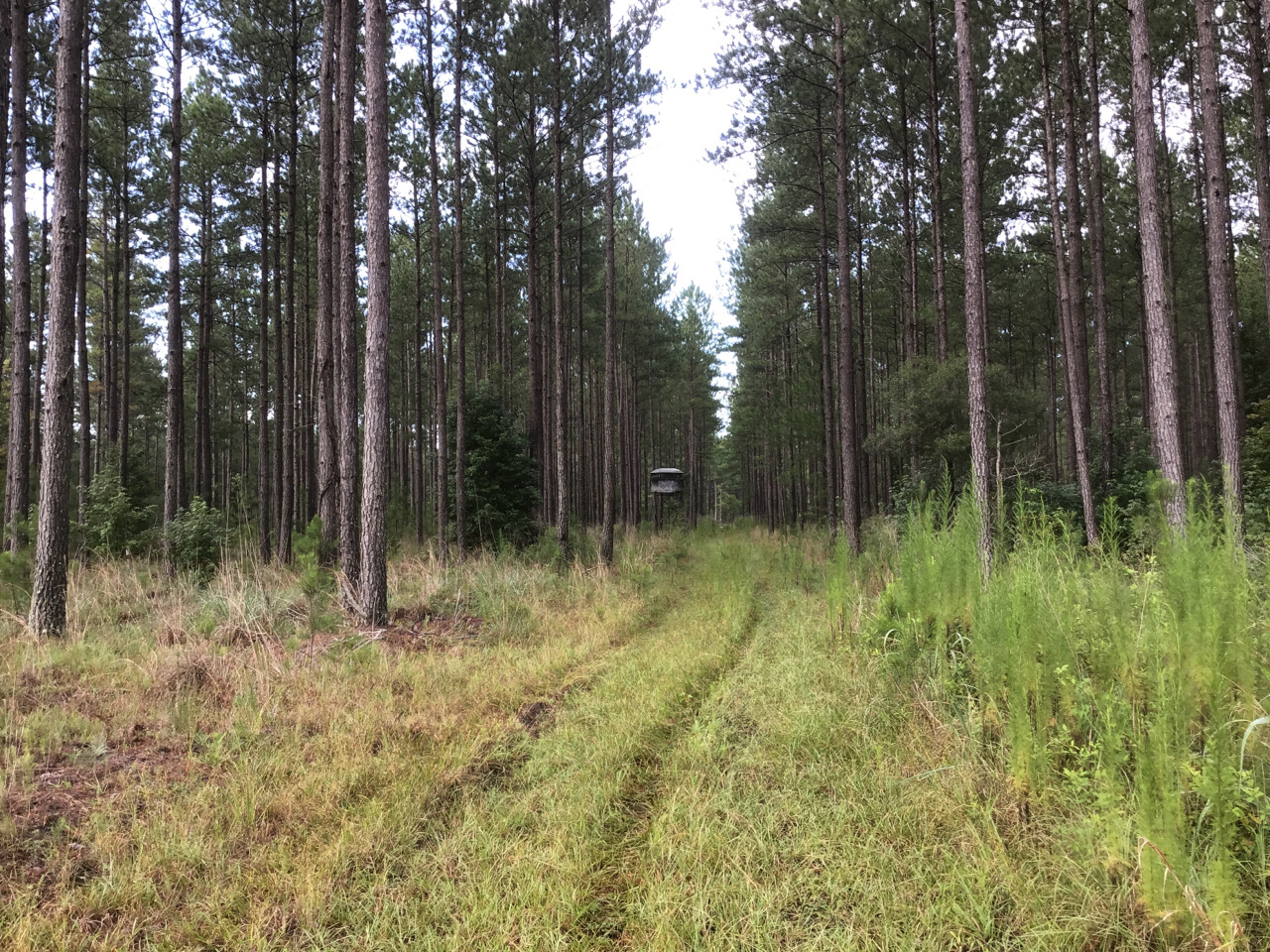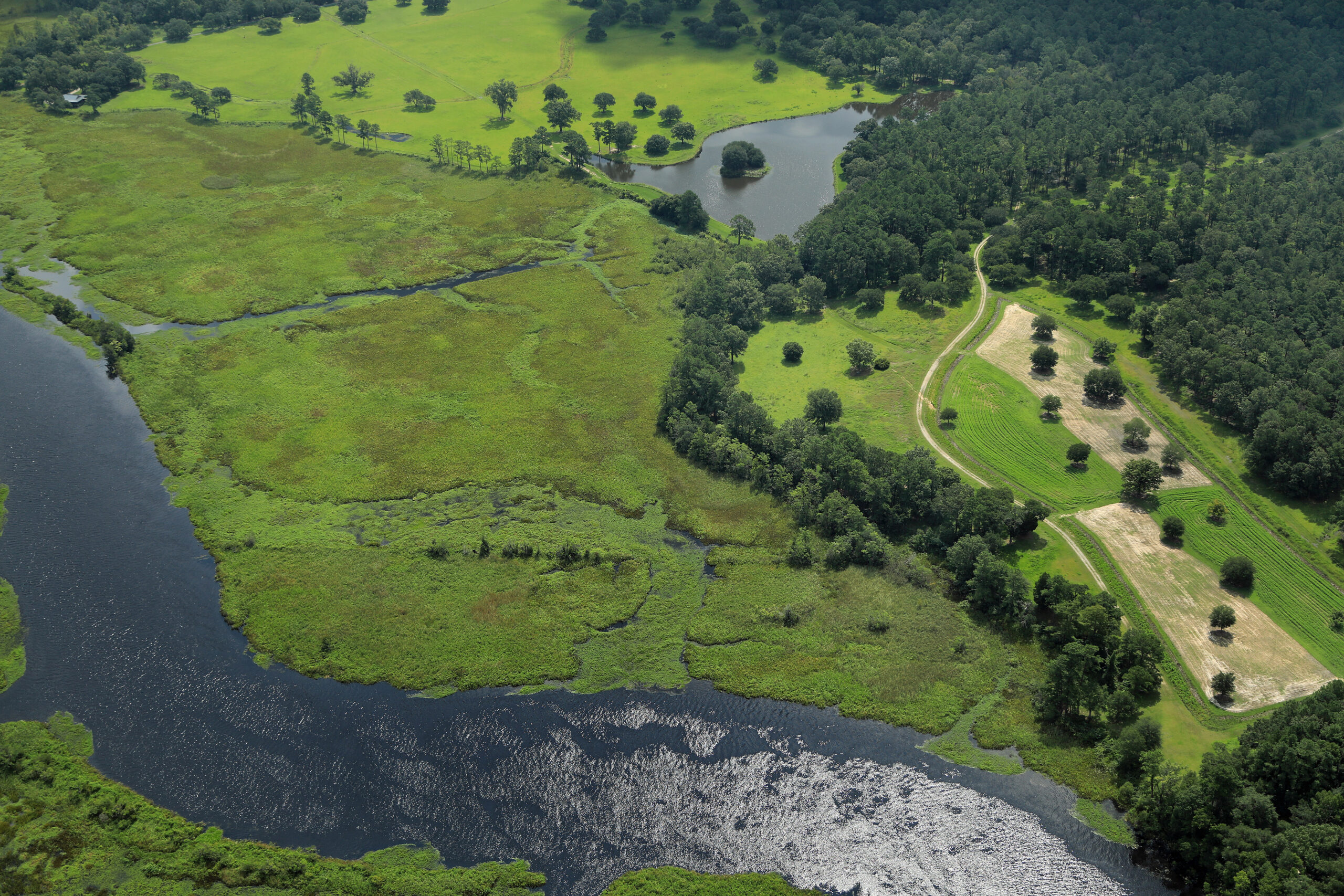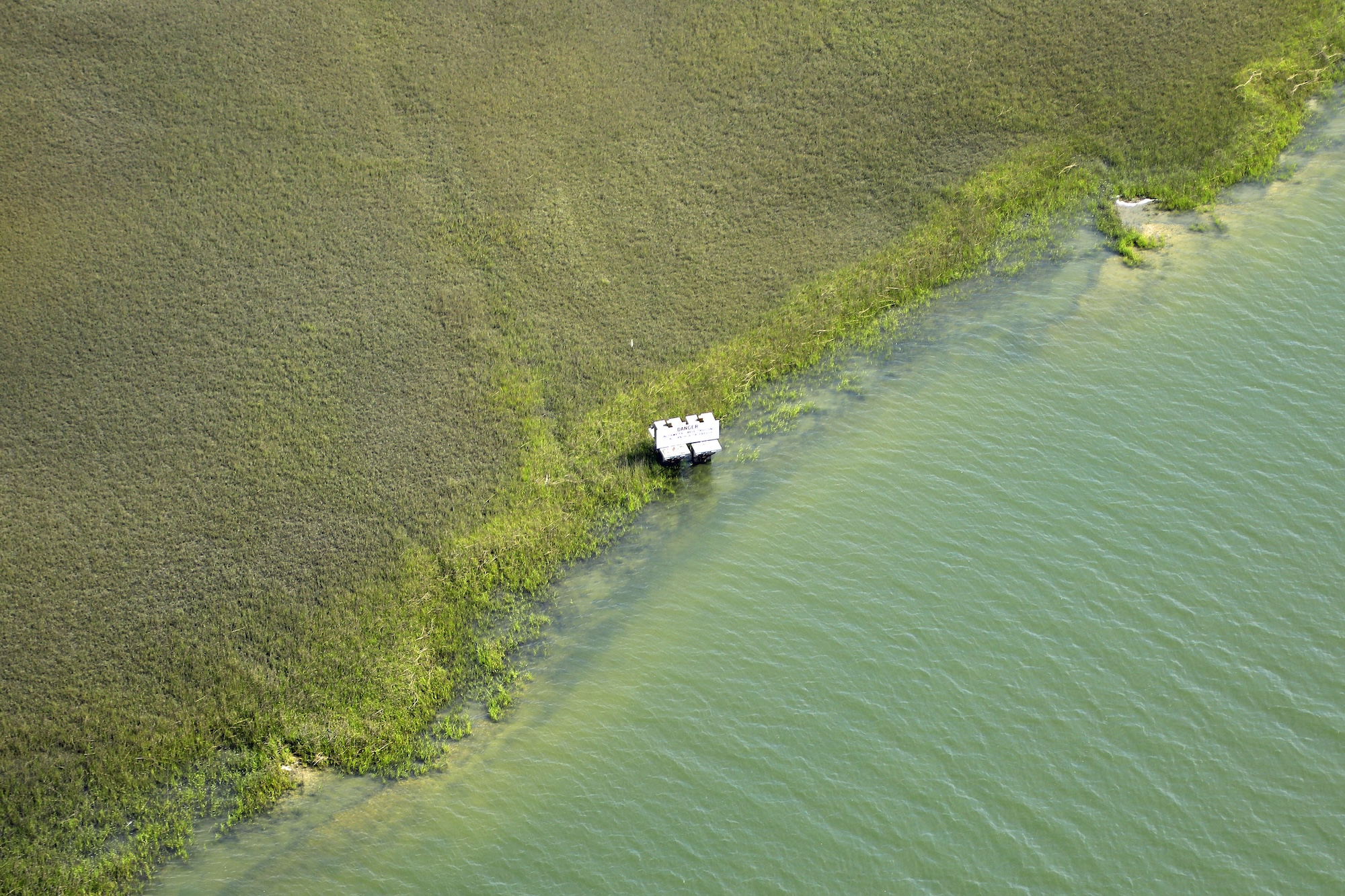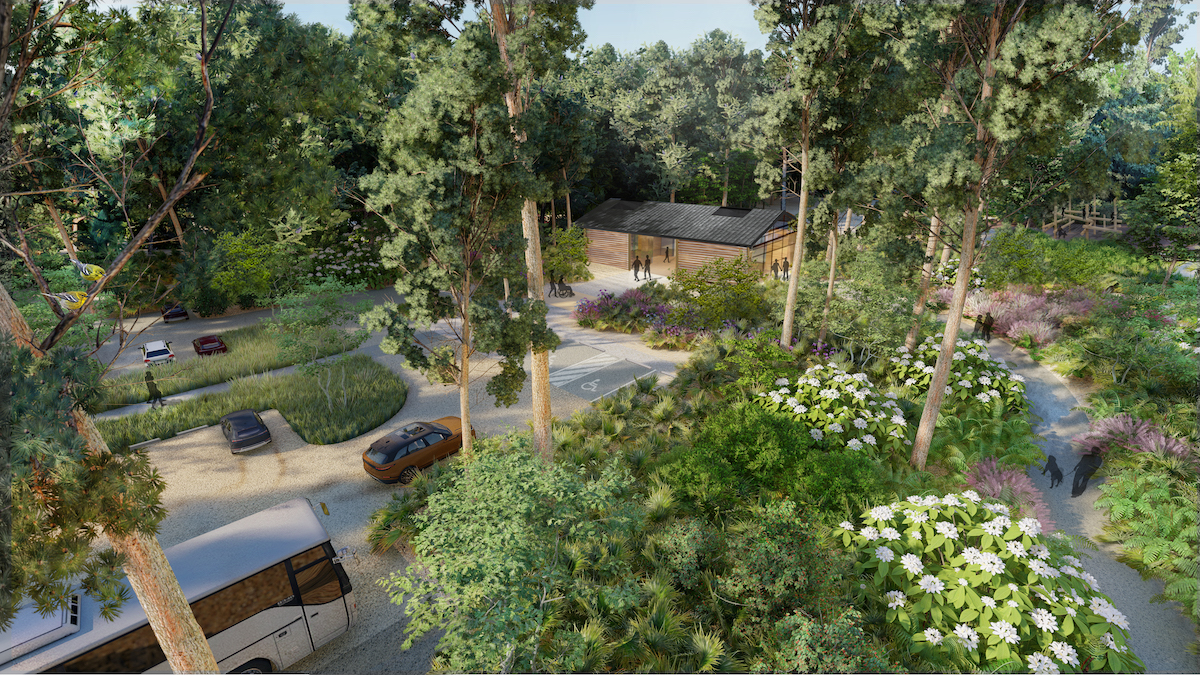A prominent feature of the Cooper-Ashley-Wando -Stono (CAWS) River Basin, the historic Cooper River region is a remarkably intact cultural landscape containing archaeological features from both before and after European settlement, including many iconic rice plantations.
The landscape is rich in history, culture, and conservation values. It has an ecologically diverse watershed that contains mature bottomland forests and diverse wetlands filled with various species of pines and hardwoods, native grasses and forbs, forested wetlands, and stream systems. The land provides a variety of wildlife habitats that can support many rare and declining species, including breeding and roosting grounds – as well as a migratory stopover – for countless neotropical songbirds, the threatened wood stork, and the endangered northern long-eared bat. Recognized by the National Register of Historic Places in 2003, the Corridor also encompasses some of America’s earliest European and African American settlements, including native people’s hunting grounds, remnants of historic inland rice fields, enslaved Africans and Huguenot history.
The urgency to protect remaining parcels of significance in the historic Cooper River region is critical to support water and air quality, wildlife habitat, food sources, recreational outlets, and residents’ quality of life for generations to come. Over the past three decades, conservation organizations and private landowners have worked together to permanently protect more than 50,000 acres along the river. Combined with the 250,000-acre Francis Marion National Forest and 11,000-acre Bonneau Ferry Wildlife Management Area, these publicly and privately owned conservation lands form a nearly unbroken 30-mile protected corridor on both sides of the river and constitute one of the largest sanctuaries of history and nature on the Eastern Seaboard.
Keep reading to learn more about properties within the Historic Cooper River region that Lowcountry Land Trust, in partnership with landowners and community partners, protected in 2022.
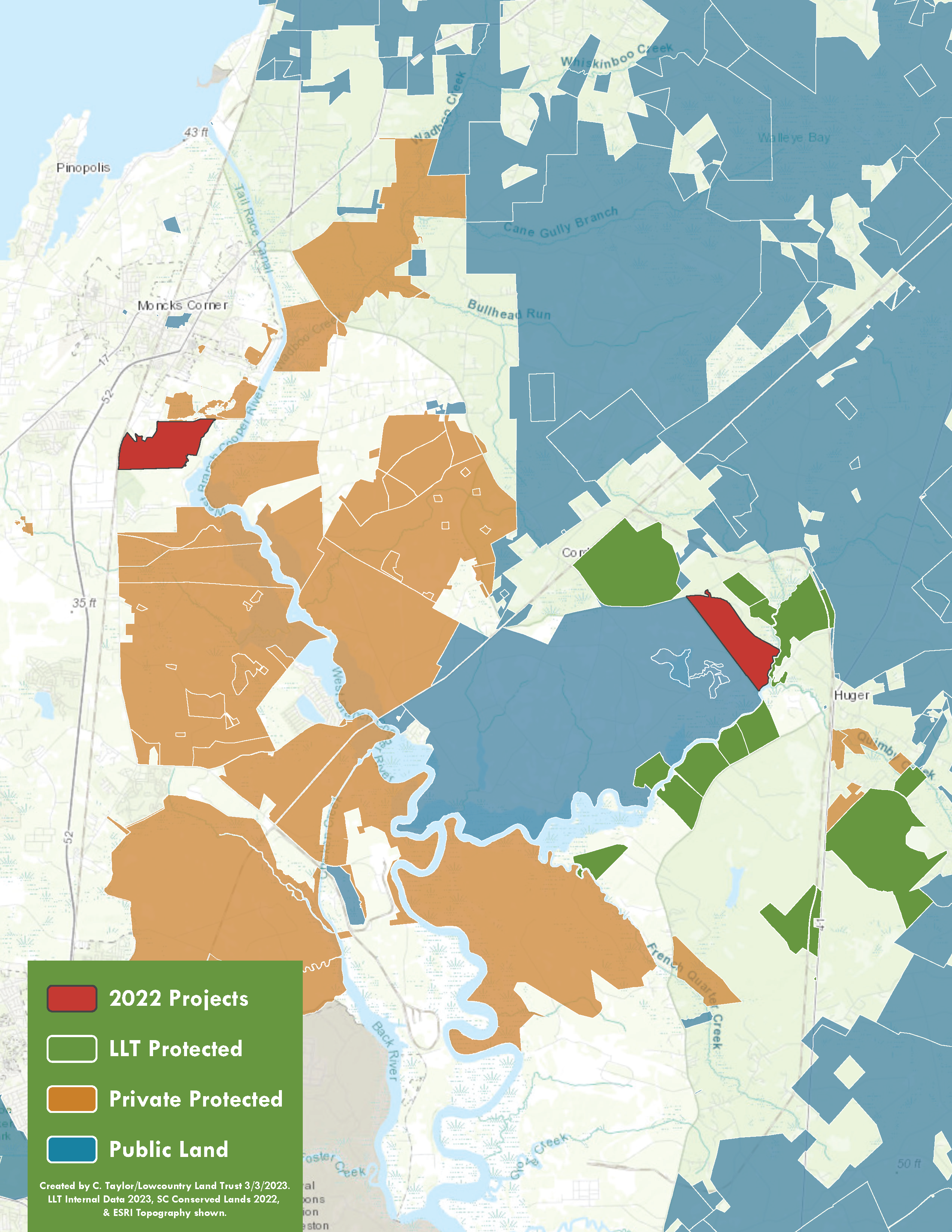
Hyde Park: In May of 2022, Lowcountry Land Trust announced the sale and permanent protection of Hyde Park Plantation, a 604-acre property on the East Branch of the Cooper River in Berkeley County. The property was acquired in 2017 by Lowcountry Land Trust with funds from its Cooper River Land Fund, established through an agreement between conservation partners and the South Carolina Ports Authority. The Cooper River Corridor’s unique ecological and historic characteristics continue to be under pressure by the growing Charleston region. By purchasing this property, placing it under a permanent conservation easement, and selling it, Lowcountry Land Trust not only protected Hyde Park but also revolved capital back to the Fund to allow for more conservation work in the Cooper River Corridor. The property includes more than 100 acres of broken rice fields and nearly 500 acres of upland forest, as well as an historic “marooning” getaway cottage dating to the 1790s. This transaction brought the total number of private, state, and local protected acres in the Cooper River Corridor to more than 58,000, which also connects to the 259,000-acre Francis Marion National Forest. Hyde Park is the thirteenth property protected by Lowcountry Land Trust in the Corridor. Hyde Park Plantation was owned for centuries by the Ball family who, at times, also owned the adjacent Kensington Plantation to the east and many other properties in the Cooper River Corridor. To its west, Hyde Park is adjacent to the 11,000-acre Bonneau Ferry Wildlife Management Area, managed by the South Carolina Department of Natural Resources. The Cooper River Land Fund was established in 2014 as part of the Charleston Harbor Deepening Project, with an initial capitalization of $4.5 million. Lowcountry Land Trust also used the Fund to purchase, protect, and sell the 425-acre French Quarter Creek property off of Highway 41 from 2015 to 2021.
Lewisfield: Lowcountry Land Trust, along with conservation partners Lord Berkeley Conservation Trust and Open Space Institute, announced in July of 2022 the protection of the Lewisfield Preserve, a 600-acre sanctuary located along the West Branch of the Cooper River in Berkeley County, South Carolina. This property comprises mature bottomland hardwood forests and historic inland rice fields and is a vital addition to the protected landscape near the northern edge of the Charleston metropolitan area. Over the past three decades, conservation groups and landowners have permanently protected more than 50,000 acres in Berkeley County, including some of America’s earliest European and African American settlements. Lewisfield is just one of many protected sites along the Cooper River, forming a nearly unbroken 30-mile protected corridor along both sides of the river that extends up the historic East and West Branches. The conservation of Lewisfield is a unique opportunity to highlight an important and largely forgotten aspect of colonial agriculture: cultivating inland, non-tidal rice fields. Unlike their more well-known tidal rice field counterparts, these fields were only used for a few decades and were eventually abandoned, reverting back to bottomland forests. The creation of South Carolina’s rice industry through the labor and specialized knowledge of enslaved African people is considered one of the most monumental feats in human history. Lewisfield offers a chance to shed light on this history, including the accomplishments of those who lived it. In addition to its historical significance, Lewisfield is also a biological treasure trove. With towering forests and diverse wetlands, the acreage serves as a habitat for countless neotropical songbirds, the threatened wood stork, and the endangered northern long-eared bat, as well as hundreds of species of vascular plants. Lewisfield was purchased by the Open Space Institute in 2018 with the intent that it could serve as mitigation for impacts associated with the South Carolina Department of Transportation Berlin Myers Parkway project in Dorchester County. A simultaneous transfer to Lord Berkeley Conservation Trust and grant of the conservation easement to Lowcountry Land Trust finalized the protection of the property in perpetuity.

